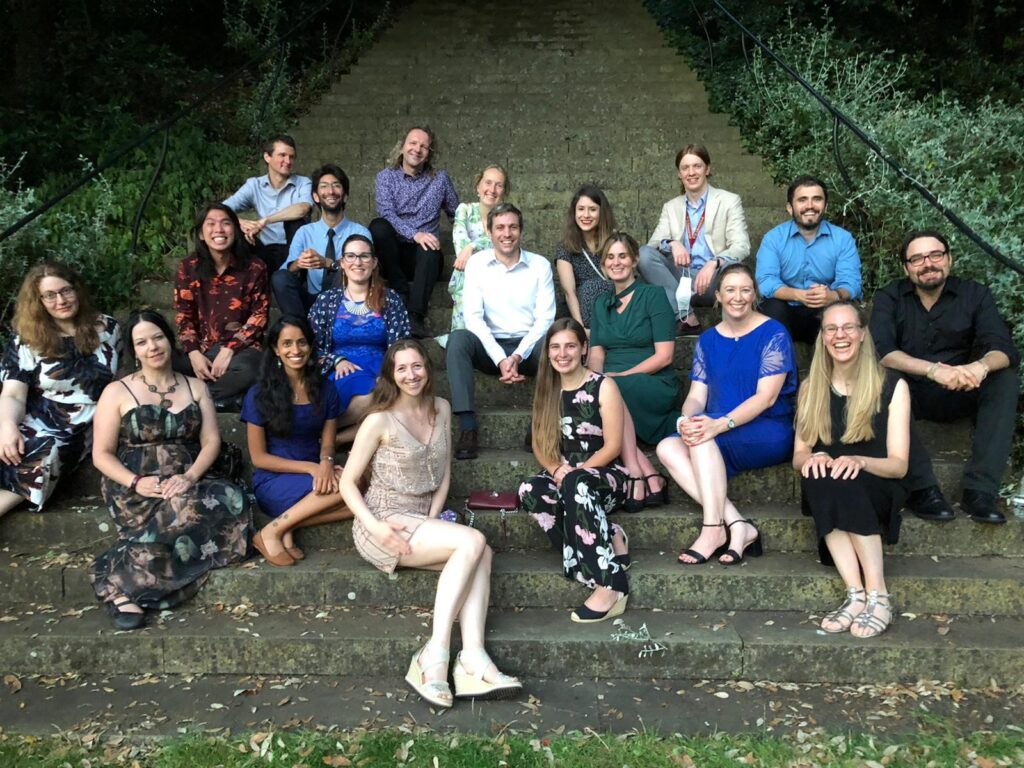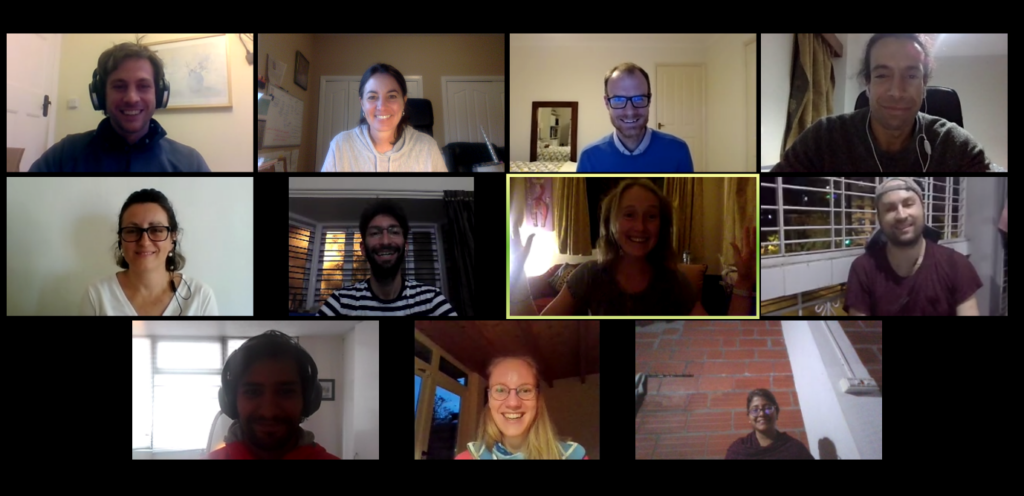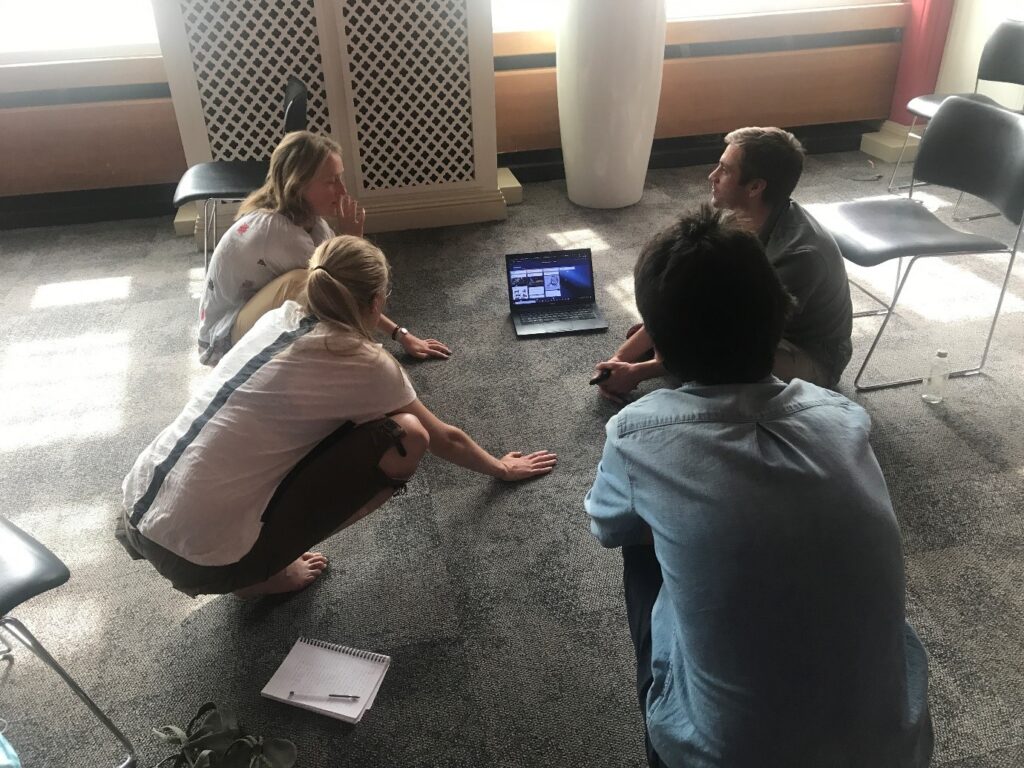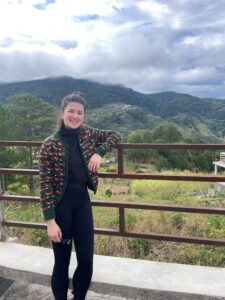University of Oxford
11a Mansfield Rd
OX1 3SZ
UK

By Mirjam Hazenbosch
The Interdisciplinary Conservation Network (ICN) is a bi-annual event that brings together early-career researchers (ECRs) in conservation science, providing them with the opportunity to build collaborative networks, produce strong research, and learn skills useful for their careers. In earlier editions of ICN, participants all came to Oxford for a three-day workshop (see this blog from 2018). But bringing people together in times of a pandemic isn’t straightforward at all, so we had to be creative.
Luckily, Zoom came to the rescue! In September 2020, we – 24 select ECRs and six mentors – Zoomed in to kick off ICN 2020-2021. There was a whole array of different time zones and climates on screen: some of us were enjoying our morning coffees in a t-shirt soaking in the morning sun in Brazil, whereas others were drinking their afternoon teas wearing a jumper – trying to forget about England’s rainy weather in the Autumn!
We then split into three groups and started working on our collaborative research projects through a series of virtual Zoom meetings. The first group, led by Tom Pienkowski and Laur Kiik, asked if it is useful for conservationists to explore questions about themselves: could we become better conservationists by reflecting on who we are and what we do? The second group, led by Thais Morcatty, Shan Su and Penthai Siriwat, aimed to develop a framework for studying online wildlife trade. What are the ethical issues and methodological approaches to keep in mind when researching wildlife trade online? The third group, led by Peter Coals and Melissa Arias, thought about the drivers and linkages behind both the illegal wildlife trade of big cats and human-felid conflicts. All groups received mentoring from more senior conservationists and academics who brought experience, perspective and diversity to the groups.

Zoom meetings allowed us to kick start our collaborative research projects for ICN 2020-2021 despite the COVID-19 pandemic!
In July 2021 – after months of online meetings and focusing on our research work – we got to ‘zoom’ out from our work for a bit. It was time for the ICN workshop! This year the workshop was a truly hybrid event. Those participants who could travel to Oxford attended in-person, and those that could not because of COVID-19 restrictions, continued to Zoom in. We were also joined – physically or virtually – by experts from all over the world who led different skill-building sessions specifically tailored to ECRs, so we could hone a multitude of transferable skills.

Participants in the ICN 2020-2021 workshop thinking about how to transform their months-long research into a one-minute story!
To give you a flavour of the breadth of topics that we discussed during the workshop: Professor E.J. Milner-Gulland busted some myths about getting funding for your research (persevere!), Dr Charlotte Bell and Dr Rachel Bray shared their thoughts on how to best manage people (and dogs), and Julia Migne and Dr Sofia Castello y Tickell inspired us with tips about how to transform your research into memorable stories and visuals (storyboards are your friend!). These are just a few examples of the many great and interactive sessions we had on research and career topics.

Those ICN participants who could make it to Oxford got to enjoy a dinner at New College after a day of skill-building sessions!
For many of us, it was the first time that we organised or attended a hybrid event. It came with many challenges and opportunities. For our top tips on how to make a hybrid event work – see below!
Now it is time for us to all Zoom in again and finish our collaborative research work. We are aiming to publish our work in scientific journals and present it both via academic conferences and more public-reaching channels – keeping all we learned about writing, presenting and telling stories during the ICN workshop in mind.
As 2020 and 2021 have been unusual years, ICN 2020-2021 also had to be different. But by thinking creatively and making the most of online platforms, we still managed to bring people together, offer them training, and learn many things.
Watch this space for our outputs – don’t ’zoom’ out just yet!
Tips for organising a hybrid event
(1) Make sure the venue supports a hybrid event: there should be good quality speakers, a big screen (ideally multiple screens) to which you can project, and window blinds in case it gets sunny.
(2) Check, check, and double check all the tech involved beforehand. Things to look out for include:
If there are too many open microphones in the room, there may be an echo. All the in-person people that are on Zoom should have their microphones muted.
You will need a minimum of two conference laptops: one which will allow in-person presenters to be on camera, and one that can display the room.
Are the cameras at a good angle? Otherwise you may get some awkward views…
(3) Time keeping is essential! You can’t run late in a hybrid event as otherwise online people will be just waiting on Zoom or get confused as to what session they are joining.
(4) Speaking of time – make sure you think well about time zones. Online participants or presenters may join from very different time zones, so you need to think that through when putting together the schedule.
(5) Decide beforehand whether you would like to record sessions. If yes, make sure you have everyone’s permission to do so. Also be clear on what happens to the recordings afterwards (who can access them where and for how long?).
(6) Have a protocol for how people can get the presenter’s attention in case they have a question or comment. Things to consider include:
Should online people raise their hand, just come off mute and talk, or write in the chat box?
Should in-person people raise their hand or come up to the microphone and speak?
Who moderates the Q&A? It may be difficult for online presenters to see what is going on in the room, so it may be best to have someone in-person to organise the Q&A if the presenters are not in the room.
Whoever moderates the Q&A should strive to give equal attention to in-person and online people.
(7) Allow time for in-person and online people to connect. Otherwise there will be a dichotomy between online and in-person people. Maybe organise coffee breaks in which 2-3 people in-person join a Zoom breakout room with 2-3 people online?
(8) Make sure the Zoom settings are set so that presenters can share their content straight away.
(9) If the presentation involves breakout groups, make sure the presenter knows exactly how they would like that to be organised: do they want in-person people to form groups and online people to form breakout groups or should there be a mix? Make sure this is clear upfront, so you save time in getting this up and running. The person who owns the Zoom account should be aware of this so they can set up the breakout groups straight away.
(10) Decide on whether you want in-person people to join via Zoom as well. If so, make that clear to in-person participants beforehand so they can bring a laptop or phone with them and connect.
A big thank you to the Oxford Martin Programme on Wildlife Trade, the University of Oxford’s Interdisciplinary Centre for Conservation Science (ICCS), Wildlife Conservation Research Unit (WildCRU) and the Oxford Brookes University Wildlife Trade Research Group for co-organising this year’s event, and to Dr Hunter Doughty and Tom Pienkowski for leading on the organisation of ICN 2020-2021. Thank you too to the Oxford Martin School for hosting the workshop. A special thanks goes to all speakers, mentors, and participants of ICN 2020-2021 – without you this would not have been possible!

